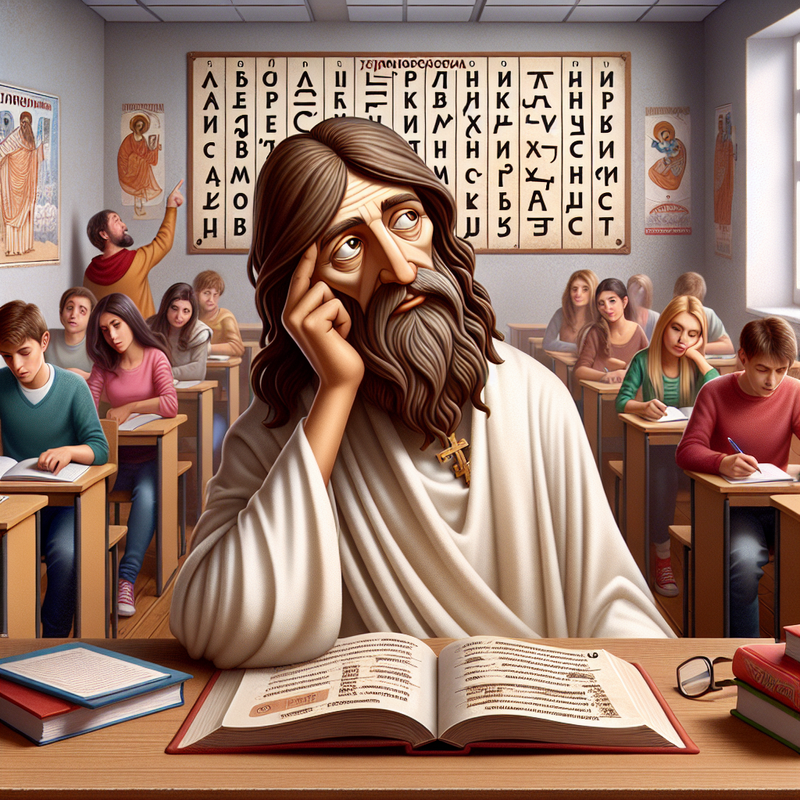"There are two words so sacred in Jewish tradition that they were never spoken aloud. But Jesus didn’t just say them—He said them out loud, in public.
And when He did… soldiers fell. Why? Because these weren’t just words. They were the divine name spoken from human lips. In John 8:58 and John 18:6, Jesus wasn't claiming to follow God. He was revealing something much deeper… He was the voice in the burning bush."
The phrase "I AM" stands as a profound and multifaceted declaration within the teachings of Jesus in the New Testament. At its core, the phrase "I AM" is a direct echo of God's self-identification in the Hebrew Scriptures. In Exodus 3:14, God reveals His name to Moses as “I AM WHO I AM.” (This verse is incidently pi, 3.14, which was solved to two decimal places by Archimedes in 250 B.C.).
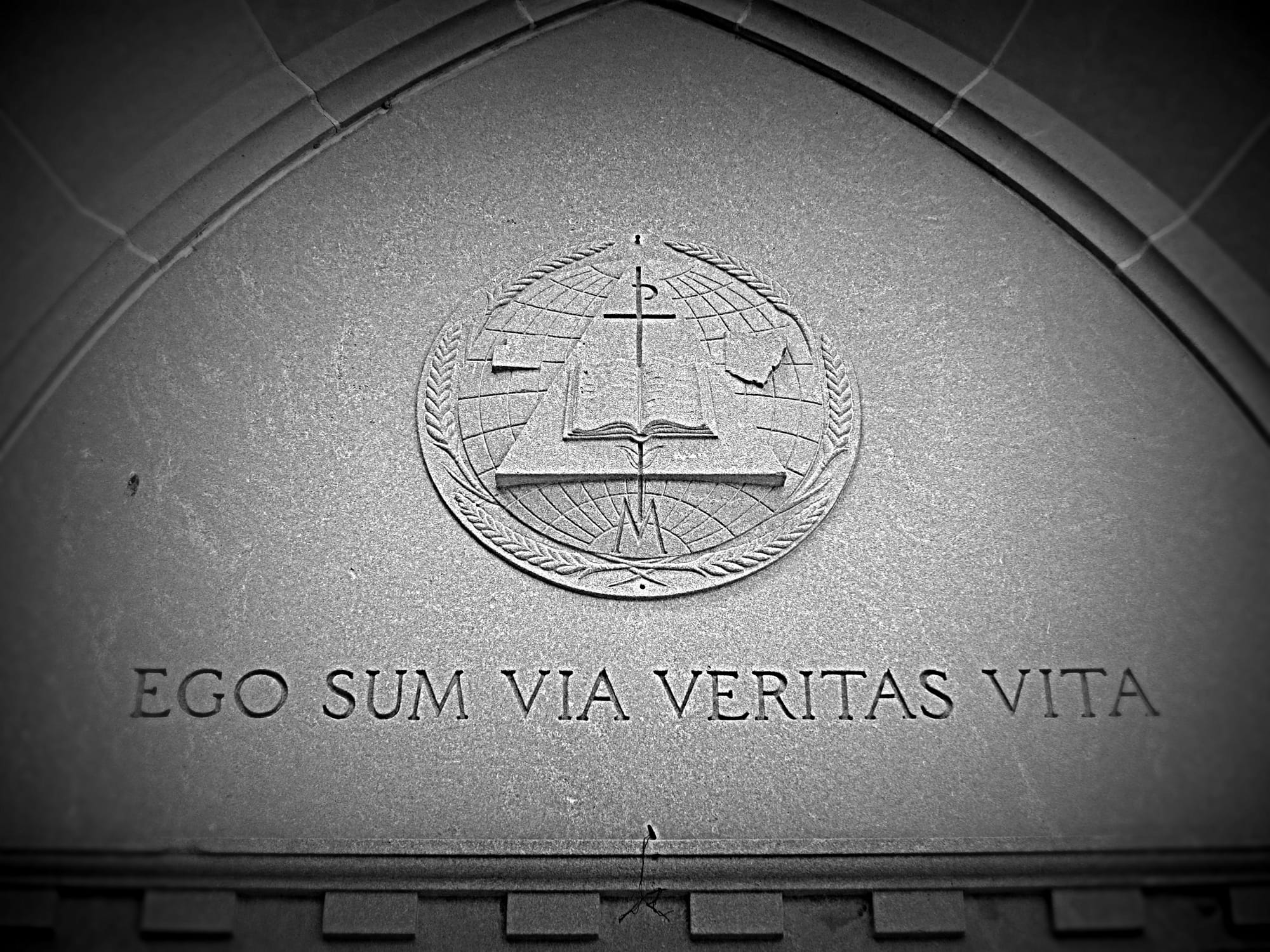
By employing this phrase, Jesus aligns Himself with the divine, asserting His identity as God incarnate. This assertion is made particularly evident in John 8:58, where Jesus states, “Before Abraham was, I AM.” This declaration signifies His eternal existence and divinity, reinforcing the notion that He exists outside of time and is inherently linked to the very nature of God. It is also the ONLY grammatical error in the Bible, we could literally write in (sic) after Jesus spoke it because he stated a linguistical error. (sic) in Latin means, "thus" or implies "as it was written or spoken." Jesus didn't say, "before Abraham, I WAS," which is correct English, but this error is the SAME in the 756 languages that have a complete Bible translation. (1,726 languages ONLY have the New Testament translated.) In "Before Abraham, I AM," the verb "AM" is in the simple present tense, which signifies a current state of existence. By using "I AM," Jesus asserts He exists outside of time and has always been. This declaration contrasts with "Before Abraham," which references a past temporal context. So, every Bible has this one significant grammatical error. It was deliberate. And no one I've listened to explain this specific, "I AM", has never explored these insights.
The absence of a present tense in Hebrew further emphasizes the eternal nature of God. In the original language, "I AM" conveys a sense of timelessness, indicating that God is not bound by the constraints of human understanding of past, present, or future. This aligns seamlessly with the Greek phrase used in the New Testament, "ἐγώ εἰμί" (ego eimi), which translates to "I am." By identifying Himself in this way, Jesus underscores His self-existence and eternal nature, inviting listeners to recognize His divine authority.
Linguistic connections also enrich the understanding of "I AM." In French, the phrase "Je suis" translates to "I am," and phonetically resembles the name "Jesus." French is a relative of Latin Vulgate, where "I AM" is "ego sum." Similarly, in Russian, the expression "Я" (Yaw) translates to "I am." The Cyrillic character "Я" (Yaw) represents "I," and when combined with "есть" (yest, meaning "is" or "to be"), it forms an intriguing parallel.
When viewed in a mirror, it can evoke the words "YAW" and "WAY," which is the tetragrammaton YHWH. But it was originally oral, so YAW-WAY is neatly tied up in the trans-languages as "ЯR", suggesting much deeper meanings about identity and direction. The "R" symbol is an Egyptian hieroglyph and was notably found on tombs, facing either direction. This evokes the two eyes of Horus (𓂀) in Egyptian mythology, with his right eye associated with the sun and left eye with the moon. Egyptologists have long believed that hieroglyphs representing pieces of the symbol stand for fractions in ancient Egyptian mathematics. The symbol of Russia has been the two-headed eagle since the 15th century. Я and R begin to get creepy.

Throughout the Gospel of John, Jesus makes several significant "I AM" statements that reveal His character and mission. For instance, He declares, “I am the bread of life” (John 6:35), indicating that He provides spiritual sustenance. In John 8:12, He proclaims, “I am the light of the world,” illustrating His purpose to illuminate the path to truth and salvation. Other powerful declarations include “I am the good shepherd” (John 10:11) and “I am the resurrection and the life” (John 11:25), each encapsulating His role as protector, savior, and source of eternal life.
In conclusion, the phrase "I AM" serves as a central focal point in understanding the identity of Jesus Christ. By connecting to the divine name revealed in the Hebrew Scriptures, emphasizing His eternal nature, and employing powerful linguistic and thematic elements, Jesus invites individuals into a deeper relationship with Him. The significance of "I AM" transcends mere words; it embodies the essence of His mission and the transformative impact He seeks to have on humanity. As believers reflect on these profound declarations, they are reminded of the intimate and eternal nature of their connection to Christ, the one who is, and always will be...
I was trying to avoid a YouTube link, but this brief spot on, "Who was Jesus praying to?" yields an excellent example of how Jesus used the Greek grammar to complicate himself. Without the ability to use this conjugation in such a masterful way, it's possible Jesus would have just been thought an idiot, espousing silly claims, and not worth listening to. Click here for a 40-second short. It does prove a depth worthy of exploration before signing off as a scholarly atheist. If you haven't sought these depths, you can now see that your belief structure can be swallowed by a large fish... η δομή των πεποιθήσεών σας έχει καταπιεί ένα μεγάλο ψάρι.
* * *
This is the end of the essay. What follows are the legwork to support the words above. If you are ready for some eye-opening and mind-bending linguistics, here is a breakdown of "I AM" and "the Lamb."
The etymology of "I am" in English involves Proto-Indo-European roots and a complex interplay of verb forms across different languages and historical periods. The core idea of "being" or "existence" is traced back to the Proto-Indo-European (PIE) root *bheue-. This root gave rise to various forms in languages like Old English ("beon"), German ("bin, bist"), Latin ("esse"), and Greek ("phu-"), all indicating "to be, exist, or become". The English "am" is a remnant of this root, along with the verb "be," which is also derived from the PIE root.
You can extract the “I” from "JESUIS," as this simple stroke of a finger symbolizes three critical elements: the number 1, the uppercase “I,” and the lowercase “l.” This concept exists in 44 related languages that utilize Latin-based letters. If you double the strokes, they form II or “il” (He) in French, representing both first-person singular and third-person singular pronouns (Ils). This aligns with the biblical declaration, “I and the Father are one.” With the 3rd-person singular French feminine, elle, a symmetrical word, El (see below detail for Hebrew's El Al Israeli airlines) but is God. Mirror-imaged we get two impressions of God.
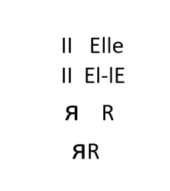
If you KEEP the "I" then we end up with the Fathers of the Church's Jesuit, the Society of Jesus (Societas Iesu in Latin which doesn't contain the spelling-anomaly), the Catholic religious order founded in 1540 by Saint Ignatius.
If you triple the strokes, you get "ill" in English and "mal" in French (from the Latin Vulgate), with "mal" meaning “wrong.” When mirrored, it reveals "mal/Iam" or "I am" in English and "Jesuis" in French. We get are spoiled with our serif-fonts, a single stroke is 1, I, and l. Think of them as │,│, and│. Think of how your eyes parse words like "Illiad" or "lillies." when seen as IIIAD or IIIIES. The single strokes are everywhere, notably forming the only positive in binary, which represents either a zero (absence) or 1 (presence). Interestingly, Jesus in binary is "01001010 01100101 01110011 01110101 01110011."
Where do you get morality from?
M O R A L I T Y
R O M A I T A L Y
The letter “Y” in English is pronounced “I greka” in French, meaning “I-Greek.” While there is no lowercase "y" in Greek, the letter lambda “λ” serves as its inverse image. So that equals the letter L.
If you add the “b” to "I am," you get "lamb," linking Jesus to the title of "the Lamb." How can you logically add a "b"? Lamb is only lamb in English. In Dutch, it's conventietly "lam..." and this paragraph would be over. But the English usage of the silent 'b' in words like thumb and debt, means you will dead-end with two avenues of linguistical recourse: Iambic or lambda. Latin or Greek. If you keep the "i" as an "I," you also see the concept of iambic pentameter, where one repeat is called an iamb or capitalized as Iamb, or I Am(b).
B "b" is significant in geometry, algebra, and calculus, as well as astrophysics and cosmology meaning "second status to A". Ptolemy named the 88 constellations according to their brightness, "A" was the main star, "b" was the second. This gives us alpha-beta, which is found in English as the truncated, alphabet. (in Hebrew in is aleph-beit)
The Rosetta Stone (to which we find the only solution to Egyptian Hieroglyphics, without this rock, we'd still be mystified at all Egyptian languages) contains only ONE name, repeated several times, and that name is Ptolemy (the name enveloped in a "cartouche", rather an oval-shape surrounding the name. This would greatly simplify naming the figures of royalty through the dynasties. Cartouche is French for the poetic "since-touching" but it can also mean a firearm cartridge, a decorative motif, or a technical drawing element. In Egyptology, it refers to an oval hieroglyphic symbol containing the name of notable persons.)
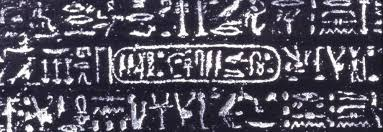
Russian seems to have no history as to why they avoided the familiar Latin "B" and founded a Cyrillic one, Б. It is a crushed-looking I+S, but Russian has no S, it has a C (Russia is Россия). B was sent to represent the sounds 'v' or 'g'.
This linguistic exploration aims to prove the statement: “Jesus = I am = (the) lamb.” In the strongest equivalence, “Jesus = Lambda.” In Russian, "da" means yes. (Also, for the ever-curious, "Suis" relates to Switzerland, known as ‘Suisse.’ This connection is relevant because the Swiss guard the Pope and the Vatican in colorful battle uniforms.

The phrase “Je suis” mysteriously appears in the first-person present tense of the French verb ‘to follow,’ resonating with Jesus’ statement, “where I go, you cannot follow.”) And since it factors in, the Fathers of the Church are called, the Jesuits (Jesuis+t or Jesus and the cross(+)).
In 1056 AD, the church split into two entities in “The Great Schism”: the Roman Catholic Church and the Russian Orthodox Church. Russian comprises 33 letters—11 Greek, 11 Latin-based (some are mirror images like Я, И), and 11 encoded Cyrillic like Д, Ю. Chi Rho (☧) corresponds to the Russian letter Ж, while "P" represents the English "R." Thus, R + Ж = ☧. "I am the lamp/lamb" (pqbd) is a solution given by Chi Rho, also known as XP.
ηθικότητα (ethikotita) is morality in Greek, ethics
The phrase “I am (the) lamb of God” connects to “λamда” = “lam/b|d\a.” In French, "Jesus" is the first-person singular pronoun conjugated with "Être" (to be) in the present tense. The second-person singular "Tu es" is a French homophone for “am killed” (tué). Thus, "JESUIS TUÉS" translates to "I AM KILLED." So it can read, "Jesus-I am killed." This informal tone is used in addressing children or familiar individuals, while English uses "you" for both formal and informal contexts. “Tu es tué” (pronounced ‘too-ay too-ay’) means “you are killed.” There is no English equivalent to this voice. Nor do we have gender pronouns distinctly for masculine, feminine, or neutral. English is a small language when seen from outside, it just has the largest vocabulary.
| Person | French | English |
|---|---|---|
| 1st person | Je suis | I am |
| 2nd person | Tu es | You are |
| 3rd person | Il est Elle est On est | He/it is She/it is One/we is |
| Person | French | English |
|---|---|---|
| 1st person | Nous sommes | We are |
| 2nd person | Vous êtes | You are (formal or plural) |
| 3rd person | Ils sont Elles sont | They (masc.) are They (fem.) are |
English, while rich with about 600,000 words, simplifies many complexities found in languages like French (200,000 words), Latin (55,000 words), Koine Greek (18,000 words), and Biblical Hebrew (9,898 words). Debating religion in English offers words far in excess of those other languages and past times had at their disposal. English can have so many similar meanings that people often argue while saying the exact same thing.
Learning French is essential for understanding the Bible in English, as well as having a working knowledge of the Russian alphabet. The English Bible is incomplete without the French and Russian Bibles, for the solutions found above.
The Bible contains about 800,000 words, many repeated or used only once, such as Jesus stating He is the Alpha and Omega (Α<>Ω), which appears four times in Revelation.
Utilizing resources like Strong’s Concordance—breaking down every biblical word into pronunciation, meaning, and etymological roots—and translating into multiple languages shows that English serves as a destination language for biblical understanding, alongside French, Russian, Hebrew, and Greek. But the winning trifecta of Biblical translations into modern languages is English, French, and Russian. The Catholic Church and Orthodox Church exist as the main religious Empires of the West. So English and Russian dominate the language-space of over 1.4 billion people. French exists as the construct through to ecclesiastical and Latin Vulgate.
The three stars in Orion’s Belt, not perfectly aligned, suggest a divine perspective where they might align in Heaven, reinforcing the idea that perfection reigns in God’s view. If you were to climb an infinite ladder, somewhere Orion's Belt would align. This star formation is used widely as the "ellipsis" or the three dots in...
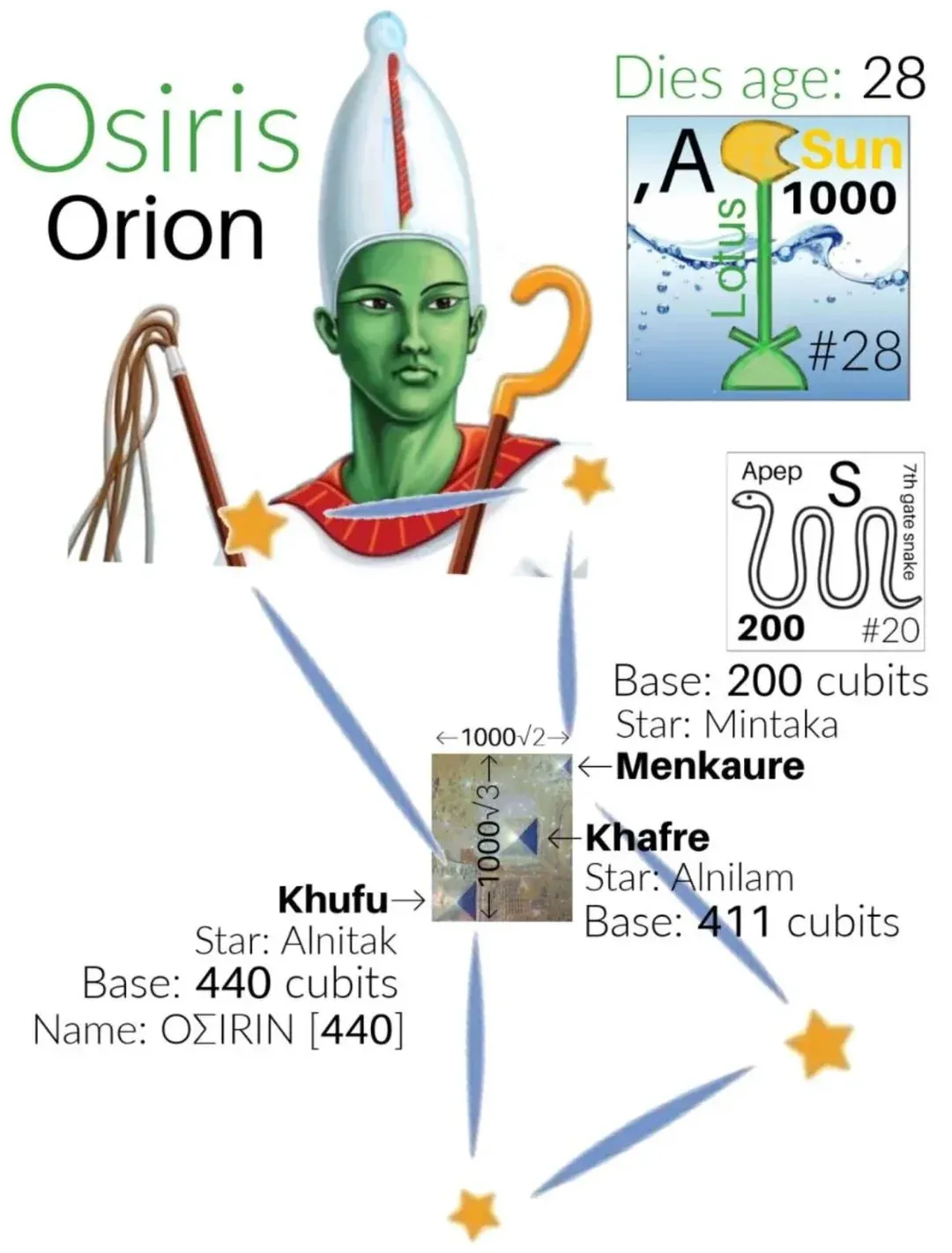
The pyramids of Giza are perfectly aligned with the unaligned Belt of Orion, indicating the Egyptians’ reverence for these sacred stars. Curiously, the Cyrillic letter “Д” was designed to represent a rippling flag, akin to Egyptian cryptology, signifying “The Flag of God.” There is no Russian reason for this character, the D was already formalised. But Cyrillic needed a new D and it can be found in the Egyptian Flag of God, 𓊹.
The exploration of linguistic connections reveals deep insights into the identity of Jesus, God, and the complexities of language. Trying to crowbar in from another language offers many wonderful excursions on how a thought can be transmitted into word orders. The Bible in French is a far more poetic, metaphoric, and substantive version. Compared with French, the English Bible is naked, austere, and cold. It is no wonder cathedrals of consequence are littered throughout France, they all read from the French Bible! And in English-speaking countries, they were spoon-fed Latin, and still constructed tributes to God. Thanks in part to Martin Luther, with the English version, we have stopped making beauty. Churches today look like bingo halls. Atheism is championed as the might of the thinking man. IF we're ready to throw the English Bible out as a failed means of salvation or an old injury we stopped feeling, we have to stop, reverse, and see what we've missed.
Like the word Vatican. Vatican's etymological roots derived from Latin Vaticanus, related to the Latin Vaticanus Mons (Vatican Hill), which was an ancient Roman burial site in Rome. The word itself is linked to the Latin vates, meaning “prophet” or “seer.” However that looks like VATIC (prophet) and ANUS to an English speaker. In Latin, the word "anus" means "ring" or "circle." It originally referred to "a circular opening". Prophet, circular opening.
A great etymology is "real". In Latin, the word is "realis" meaning ‘thing’. Obviously to anyone as a work-through of Israel! So Israel is, actually, Is Real.
And it's not a stretch to see the letters that make up "seal", the act of sealing a document. It comes from Old English "seolh."Well it is my argument through these millennia, that scribes and copywriters, monks and priest either knew when they spelled SHEOL (Hades in Hebrew), saw the connection between the two but were ambivilent (99% not possible), or they just missed 2000 years of something only "I" picked up on (likely the same odds). SEAL, the animal, in French is 'F*CK', phoque. A "seal" is 'sceau', pronounced 'so' which is 'bones' in reverse, 'os'. That means in virtually every sense, phonetically, etymologically, and biblical-linguistically "seal" is Hell, bones, f*ck...
The French Bible would re-ignite passions if English people spoke French. But since America has Spanish as a second language, and the British population hates the Feench for past transgressions, that leaves the small Canadian minority of Quebec French-speakers to tell the world why the Bible is so much clearer in French. Less of a willing suspension of disbelief required in French over the cold, hard light-of-day English. No wonder woke-era Bibles don't speak to people. No wonder some people refuse to look at anything beyond the King James Bible.
The interpretation of the Bible varies significantly among English-speaking, French-speaking, and Russian-speaking contexts, particularly regarding themes like prosperity and church culture. One notable absence in French Bibles is the prosperity gospel, which promotes the idea that faith can lead to material wealth. In many English-speaking countries, this message is prevalent, often reflected in the teachings of megachurch preachers. In contrast, French-speaking churches emphasize traditional Christian values, moral teachings, and communal support rather than financial gain. Those false pastors need to be kicked out of the biblical fold, make them use French translations to boost their points! They won't find them. Prosperity preachers, even with a kind nod, are run-of-the-mill liars gifted with charisma. Nothing more than people who avoided an office job. Kenneth Copeland, even with his works scrutinized with rose-colored glasses, is a demonic-actor albeit with some charisma.
Russian Christianity, particularly within the Orthodox tradition, adds another layer to this discussion. Astonishingly, the Soviet Union was atheist ("Religion is the opiate of the masses," said Karl Marx in 1843, thinking "hence let us make Communism be their opioid.") The Russian Bible is often approached with a strong liturgical and sacramental focus. Here, the emphasis is on the mystery of faith, the importance of communal worship, and the historical continuity of the church. The prosperity gospel is absent in Russian contexts, as the Orthodox Church traditionally prioritizes spiritual wealth over material success. Instead, there is a focus on endurance through suffering, reflecting the historical context of the Russian people. The English Bible, then, is a means to get rich for many, many people.
Moreover, English Christianity often leans toward individualism, focusing on personal faith and success. In French contexts, there is a stronger emphasis on community and solidarity, reflecting cultural preferences for collective well-being. Russian interpretations also highlight community but are deeply rooted in the historical struggles and resilience of the Orthodox faith, fostering a sense of unity and shared identity.
Theological depth is another point of divergence; French interpretations frequently engage with philosophical questions and historical contexts, whereas English sermons might prioritize practical applications for daily life. In Russian Christianity, theological discussions often intertwine with national identity and cultural heritage.
Lastly, the broader cultural landscape influences these interpretations. In English-speaking regions, capitalism and success shape biblical readings, while French secularism fosters a more critical view of such concepts. Russian interpretations, influenced by centuries of political and social upheaval, often emphasize faith as a source of strength and hope amidst adversity.
Overall, these differences illustrate how cultural values and societal norms significantly impact biblical interpretation and church practices across language boundaries, providing a richly woven tapestry of faith expressions within Christianity. The book we used to take into war, that we prayed over for healing, that we used for the "good" fight, has become largely known for its ability to stand-in for The Secret and reduces our faith to how much money we have. I don't know what Joel Osteen, or Joyce Meyer, would do with it being easier for "a camel to go through the eye of a needle, than for a rich man to get into heaven." I suspect they've thrown that telling verse out.

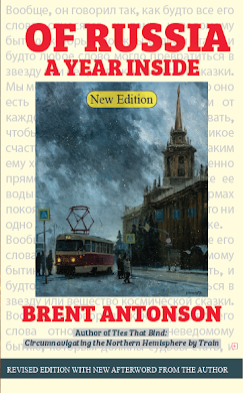
OF RUSSIA: A Year Inside
Brent Antonson has seen a Russia few foreigners have. Indeed, few Russians. This young Canadian ventured to Voronezh, eleven hours south of Moscow by train, to spend a year inside a country torn by strife, fresh into a new century, and struggling with the clash between history and future. Tasked with teaching English to students at one university, and then a second, his story is riddled with romance and deception, and punctuated with near disaster and disappointment. Antonson's candor and insights set Russia on the edge of failure and achievement – much like the students he educated, filled with a dash of hope and a lump of fear. His wit did as much to get him in trouble as it did to keep him out of it.

